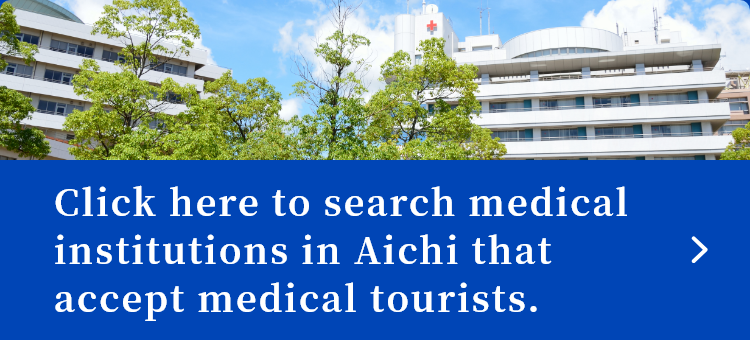Examples of efforts by medical institutions accepting medical tourists
Case Study of Medical Institutions
Kaikoukai Healthcare Corporation Nagoya Kyoritsu Hospital
Nakagawa-ku, Nagoya-shi
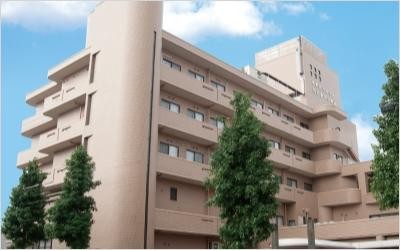
Address:1-172 Hokke, Nakagawa-ku, Nagoya-shi, Aichi
Established:1979
Reasons for accepting medical tourists
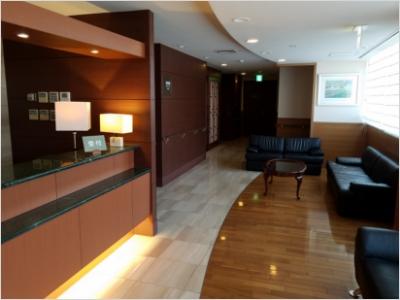
As Japan’s population will decrease in the future, we believe that medical services relying only on domestic medical service fees will reach an impasse in maintaining the functions of the hospital as a corporation and continuing community healthcare services. We thus started to accept patients mainly from China and Southeast Asia.
We first started acceptance of health checkups and gradually expanded to treatment to address demands of people who want to receive treatment of diseases identified during the health checkups in Japan. We accepted the first medical tourist in 2014.
We have improved our system in line with acceptance of patients. We established a committee for medical tourism before accepting the first medical tourists but had to comply with various demands of actually accepted patients. We thus have gained experience with each patient and responded accordingly.
We first started acceptance of health checkups and gradually expanded to treatment to address demands of people who want to receive treatment of diseases identified during the health checkups in Japan. We accepted the first medical tourist in 2014.
We have improved our system in line with acceptance of patients. We established a committee for medical tourism before accepting the first medical tourists but had to comply with various demands of actually accepted patients. We thus have gained experience with each patient and responded accordingly.
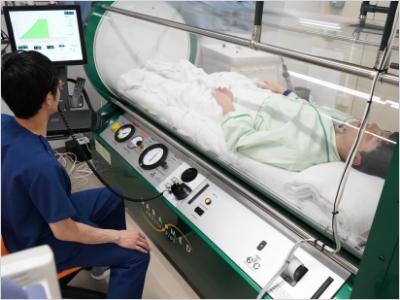
Confusion about differences in basic ideas, customs, and religions
Some Chinese patients used the hospital rooms as if they were hotel rooms, and others used their private rooms as if they were their own rooms. Our staff members naturally had anxieties since they had to provide services in a situation where they could not be understood by patients due to the difference in languages and different customs and religions. As all departments shared the details every time a problem was encountered and the entire hospital considered measures to respond to it, we have gained experience and can now provide medical care that is similar to that provided to Japanese patients.
Necessity of leaders who take initiative
In accepting overseas patients, it is essential that the leadership firmly take the initiative and proceed with the process. When receiving an inquiry, the process starts with determination of a physician to take charge. If a physician refuses to accept the patient, the process becomes stuck. We believe acceptance will become easier if key physicians play a central role in accepting overseas patients and an organization has been established where the staff members can respond to the physicians’ orders.
Acceptance system
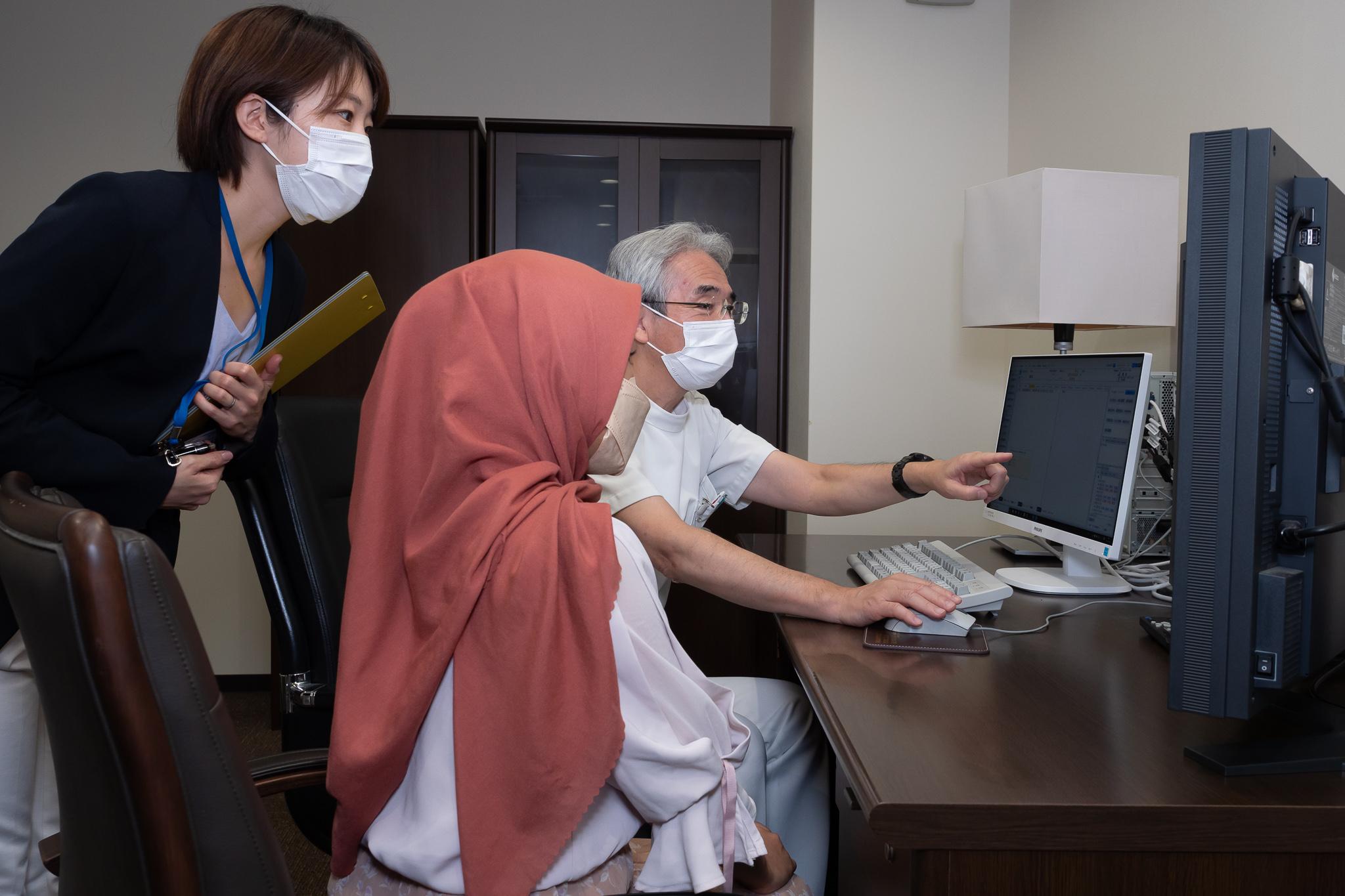
In our hospital, the department dedicated to acceptance of overseas patients, the “International Medical Division,” when receiving inquiries, notifies the International Medical Care Unit, which in turn judges the possibility of acceptance in each case. The key factor lies in patient information. The International Medical Care Unit talks with physicians based on the information. Once the patient is accepted, the process proceeds with the specified procedure. It is critical at the first stage to obtain much precise information, such as the patient's current condition, medical history, and past treatment in the country of residence. Therefore, we hear requests of physicians and obtain precise information about patients and their requests so as to focus on enhancing patient satisfaction.
You need not worry about languages. Staff members fluent in English, Chinese, Indonesian, Spanish, and Portuguese are stationed to help you. As an interpretation means necessary to support lives in the Hospital, we are fully equipped with POCKETALK, an AI translator. If you cannot communicate with the hospital staff even with POCKETALK, you may utilize our interpreter over the phone and can stay at the Hospital without concern.
You need not worry about languages. Staff members fluent in English, Chinese, Indonesian, Spanish, and Portuguese are stationed to help you. As an interpretation means necessary to support lives in the Hospital, we are fully equipped with POCKETALK, an AI translator. If you cannot communicate with the hospital staff even with POCKETALK, you may utilize our interpreter over the phone and can stay at the Hospital without concern.
We have prepared the Foreign Patient Acceptance Manual and a system to flexibly respond to foreign patients as the staff members have mastered the manual for their departments.
To prevent problems related to accounts receivable, we employ a system to first present a rough estimate and then request advance payment, such as a deposit.
Chinese and Indonesian patients often come in a group, such as with their family members, and we thus prepare a dedicated floor to enable consultation in a spacious area and accommodate the entire process, from reception to payment. We can also offer special rooms for overseas patients.
To prevent problems related to accounts receivable, we employ a system to first present a rough estimate and then request advance payment, such as a deposit.
Chinese and Indonesian patients often come in a group, such as with their family members, and we thus prepare a dedicated floor to enable consultation in a spacious area and accommodate the entire process, from reception to payment. We can also offer special rooms for overseas patients.
●Future approach
We will improve the system to attain a more prompt response by further streamlining cooperation with the “International Medical Division” and increasing and developing dedicated staff members. We have a strong presence in Cardiovascular Medicine, Nephrology, Orthopedic Surgery, and Radiosurgery and also focus on treatment of tremors called essential tremors, providing care based on our strengths and characteristics.
Initiatives
- Prompt response with our dedicated department with an emphasis on accurate patient information in determining acceptance
- System to mitigate concerns and burdens of the staff members by preparing the “Foreign Patient Acceptance Manual” for each department
- Providing a dedicated floor for overseas patients who are accompanied by family members visiting Japan
- System to mitigate concerns and burdens of the staff members by preparing the “Foreign Patient Acceptance Manual” for each department
- Providing a dedicated floor for overseas patients who are accompanied by family members visiting Japan
Chukyo Hospital, Japan Community Health Care Organization
Minami-ku, Nagoya-shi
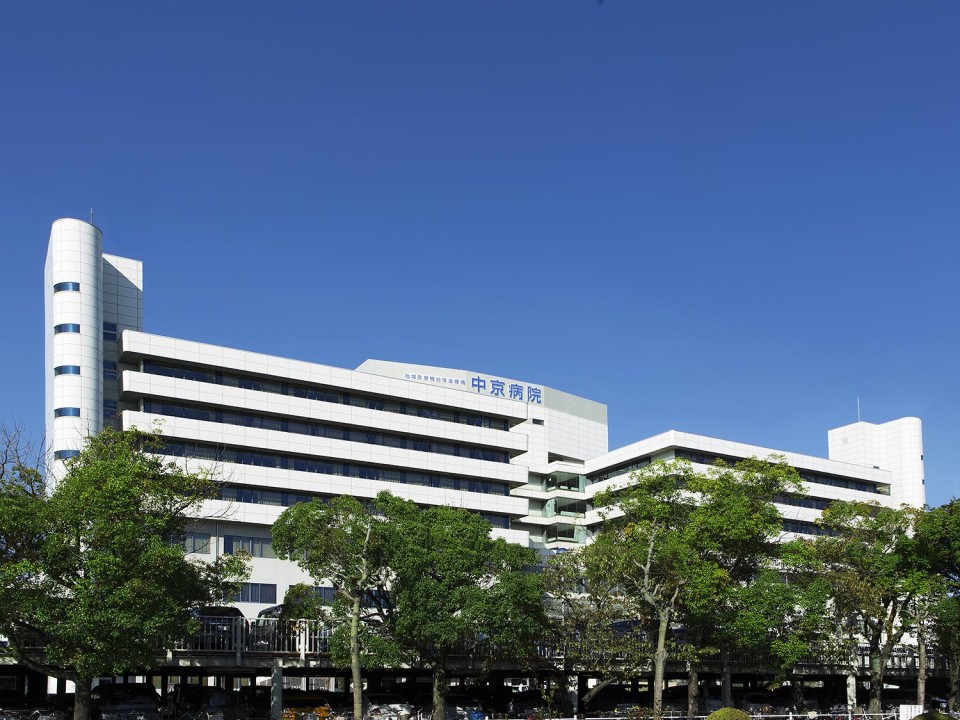
Reasons for starting acceptance of medical tourists
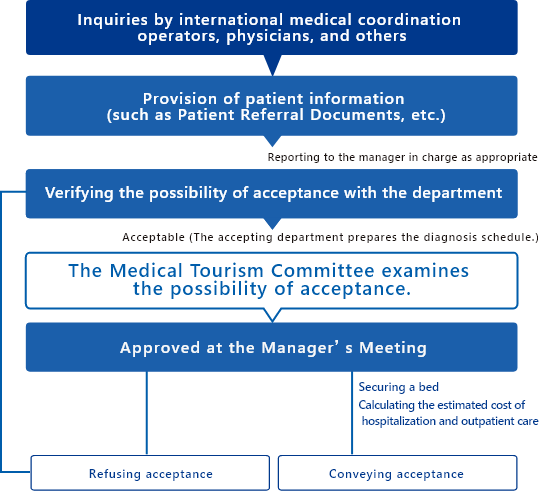
Our departments have provided technical guidance in overseas countries and accepted foreign physicians/surgeons for training at our hospital, and our acceptance of medical tourists started with requests of overseas patients for medical care in such departments.
In addition, many foreign residents live near the Hospital and often visit the Hospital for daily care. We have not determined whether to be actively involved in medical tourism but have an intention to help overseas patients if they want or need to receive our medical care by visiting the Hospital. For example, we have had patients who wanted to receive “treatment for burns” and actually visited the Hospital. We are dedicated to accepting overseas medical tourists in a similar manner to accepting Japanese patients.
In determining acceptance, the medical coordination operator contacts our Regional Medical Liaison/Consultation Office (Patient Support Office) about the request, and we receive Patient Referral Documents, etc. from the operator and determine whether one of our departments can accept the patient. The “Medical Tourism Committee” discusses the possibility of acceptance, and the Manager’s Meeting determines whether to the accept the patient.
The existence of the Medical Tourism Committee makes the hospital staff feel protected by the Hospital and tries to form a consensus among those who actually deal with the patient, fostering a positive atmosphere of cooperation among each other as an organization in unison.
In addition, many foreign residents live near the Hospital and often visit the Hospital for daily care. We have not determined whether to be actively involved in medical tourism but have an intention to help overseas patients if they want or need to receive our medical care by visiting the Hospital. For example, we have had patients who wanted to receive “treatment for burns” and actually visited the Hospital. We are dedicated to accepting overseas medical tourists in a similar manner to accepting Japanese patients.
In determining acceptance, the medical coordination operator contacts our Regional Medical Liaison/Consultation Office (Patient Support Office) about the request, and we receive Patient Referral Documents, etc. from the operator and determine whether one of our departments can accept the patient. The “Medical Tourism Committee” discusses the possibility of acceptance, and the Manager’s Meeting determines whether to the accept the patient.
The existence of the Medical Tourism Committee makes the hospital staff feel protected by the Hospital and tries to form a consensus among those who actually deal with the patient, fostering a positive atmosphere of cooperation among each other as an organization in unison.
Acceptance system
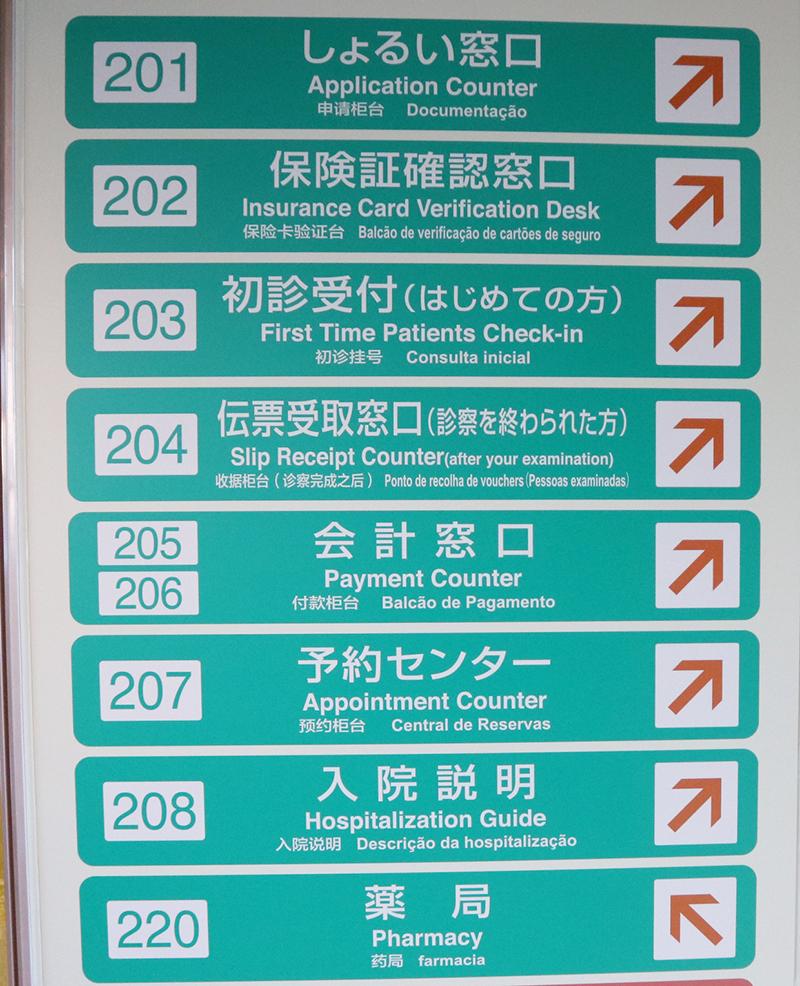
After acceptance of an overseas patient is determined, we then must study how we can organize the environment. Preparation of interpreters poses a major problem. Even when a family member or a friend says that he/she can act as an interpreter, for example, we cannot verify whether the content and details are properly conveyed to the patient or whether only favorable matters are conveyed. While physicians and surgeons explain with figures and illustrations, the explanation should first be understood by the medical interpreter in order to convey it to the patient. In the case of failure in communication, a problem may arise from ‘what was said or not said’ once some kind of trouble happens. We have used a telemedical interpretation service, but we encountered many problems due to the highly technical contents of explanations, such as explanations of surgeries.
When we accept patients via international medical coordination operators, they dispatch interpreters as needed, and we can avoid the above-mentioned problems. When we decide to accept a foreign patient in a difficult situation, including an emergency, we still recognize that medical interpretation is an issue.
In addition, we have encountered various problems due to different customs when we have handled overseas patients in the same manner as Japanese patients, and therefore we have been improving the documents, such as informed consent forms for surgeries and examinations. To prevent accounts receivable problems related to medical fees, we keep in mind the fact that we must notify the estimated cost in advance and then proceed with the treatment.
When we accept patients via international medical coordination operators, they dispatch interpreters as needed, and we can avoid the above-mentioned problems. When we decide to accept a foreign patient in a difficult situation, including an emergency, we still recognize that medical interpretation is an issue.
In addition, we have encountered various problems due to different customs when we have handled overseas patients in the same manner as Japanese patients, and therefore we have been improving the documents, such as informed consent forms for surgeries and examinations. To prevent accounts receivable problems related to medical fees, we keep in mind the fact that we must notify the estimated cost in advance and then proceed with the treatment.
●Future approach
While not all of our departments can accept medical tourists, each department is characterized by its own specialty, and some departments can provide advanced medical care. Major departments have been streamlined to ensure multidisciplinary medical care.
When more people want to receive medical care at the Hospital after resumption of inbound traffic, we would like to enhance our operations by preparing multilingual signs and documents in advance, in addition to securing interpreters.
When more people want to receive medical care at the Hospital after resumption of inbound traffic, we would like to enhance our operations by preparing multilingual signs and documents in advance, in addition to securing interpreters.
Initiatives
Our attitude to willingly accept overseas patients if they need us
- Establishing a flow to determine whether to accept patients from overseas. The staff from departments concerned have discussions with the “Medical Tourism Committee.”
- Documents, such as informed consent forms for surgeries and examinations, must be prepared.
- Establishing a flow to determine whether to accept patients from overseas. The staff from departments concerned have discussions with the “Medical Tourism Committee.”
- Documents, such as informed consent forms for surgeries and examinations, must be prepared.
Fujita Health University Hospital, Fujita Academy
Toyoake-shi
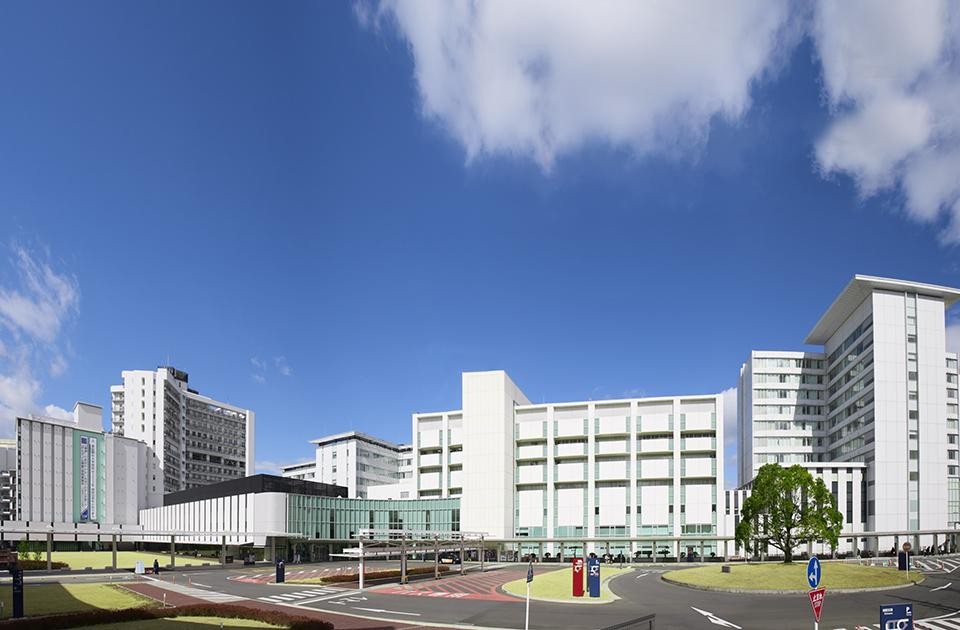
Address:1-98 Dengakugakubo, Kutsukake-cho, Toyoake-shi, Aichi
Established:1973
Acceptance of medical tourists
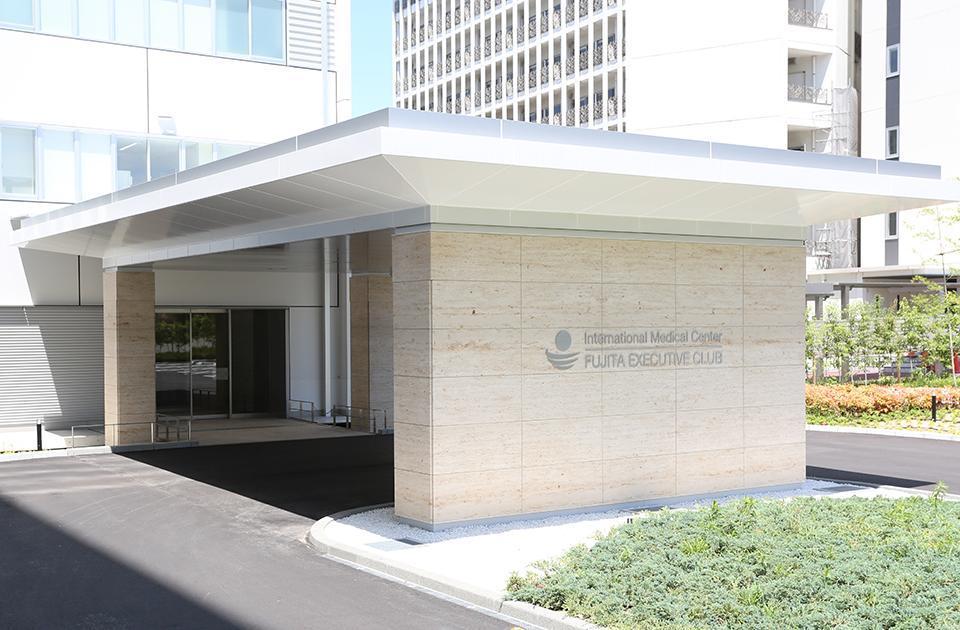
About 80% of medical tourists are from China. They often send inquiries to the Hospital via their acquaintances or relatives living in Japan. When receiving an inquiry, we usually ask the inquirer about the overseas patient’s “current place of residence, disease name, and medical condition.” In addition, we explain expenses in advance to prevent problems after they visit Japan. Once we confirm their intention to receive treatment with all details explained, we accept the patient with support from international medical coordination operators in terms of procedures for the visit.
Patients accepted with no support from international medical coordination operators are difficult for the Hospital to provide appropriate medical care since their background and medical conditions are in many cases unclear. The Hospital can usually accept patients with no anxiety if supported by international medicala coorination operators.
In accepting overseas patients, various non-medical follow-ups for the stay are required and can be outsourced to international medical coordination operators so that the Hospital can concentrate on treatment and thus provide medical care smoothly.
Patients accepted with no support from international medical coordination operators are difficult for the Hospital to provide appropriate medical care since their background and medical conditions are in many cases unclear. The Hospital can usually accept patients with no anxiety if supported by international medicala coorination operators.
In accepting overseas patients, various non-medical follow-ups for the stay are required and can be outsourced to international medical coordination operators so that the Hospital can concentrate on treatment and thus provide medical care smoothly.
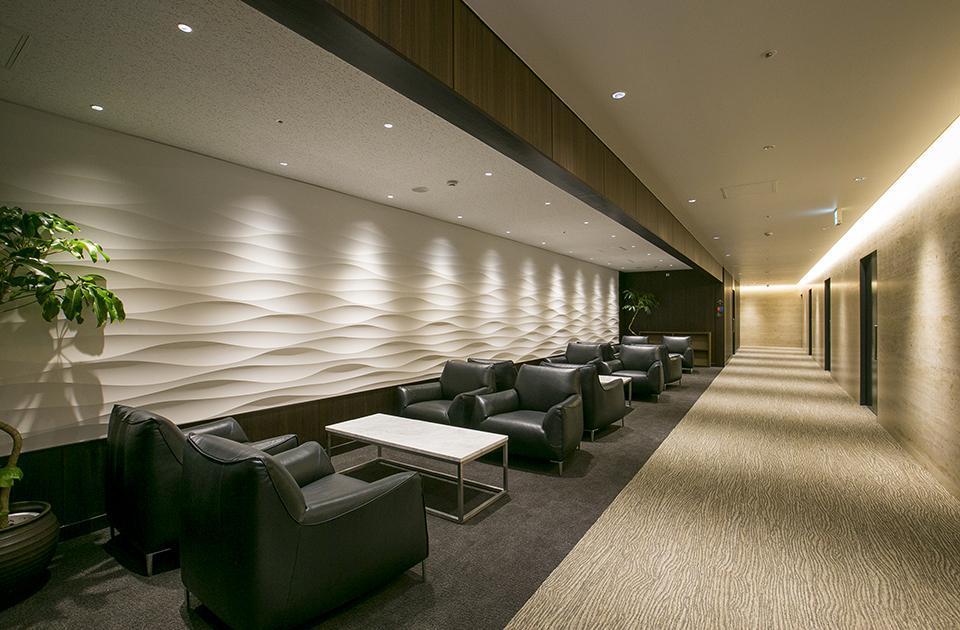
High medical fees will be charged for treatment because communication will involve interpreters. International medical coordination operators will take charge of explanations about deposits for hospitalization expenses, thus facilitating acceptance of patients.
Physicians and surgeons examine patients online in advance to prevent such cases that the patients visiting Japan for treatment are found not able to be treated. We also offer “online second opinions,” and patients can visit Japan without concern as we explain treatments and surgeries available at the Hospital.
Physicians and surgeons examine patients online in advance to prevent such cases that the patients visiting Japan for treatment are found not able to be treated. We also offer “online second opinions,” and patients can visit Japan without concern as we explain treatments and surgeries available at the Hospital.
Medical system and facilities that satisfy medical tourists
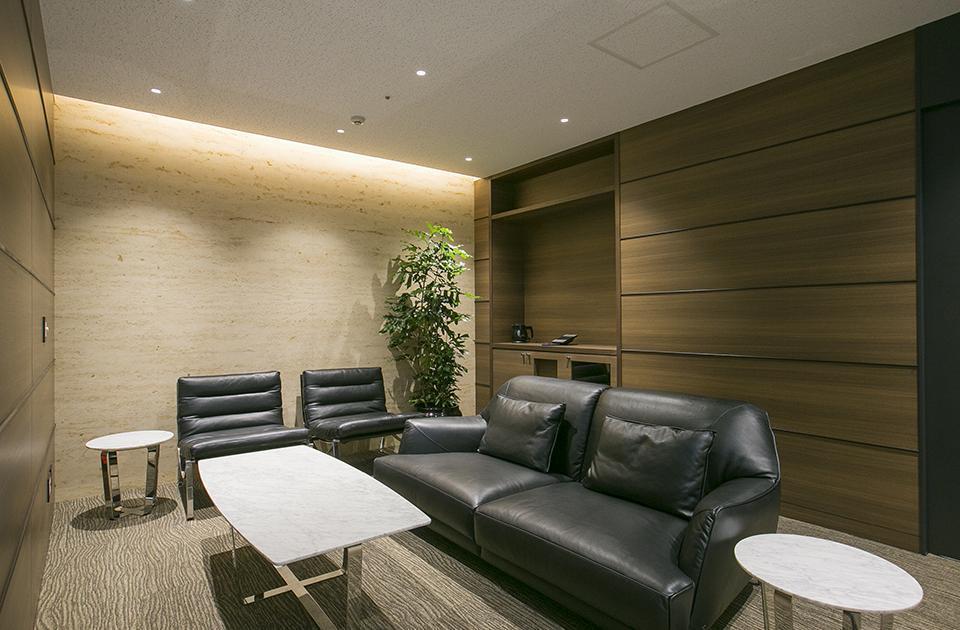
For those who are actively serving as top leaders in various fields in North Amerca, Europe, and Asia centered around China, we provide highly accurate health checkups and advanced medical care. Since many medical tourists are active players in various areas, our dedicated section, the “International Medical Center,” accepts them with security and privacy properly protected. We also provide waiting rooms and examination rooms to accommodate a large number of accompanying persons, including children, other family members, and interpreters.
We ask medical tourists in stable condition or those undergoing health checkups to stay in special rooms. Since special rooms are equipped with a small kitchen, many patients cook by themselves, and international medical coordination operators sometimes prepare tableware or the like for them.
We ask medical tourists in stable condition or those undergoing health checkups to stay in special rooms. Since special rooms are equipped with a small kitchen, many patients cook by themselves, and international medical coordination operators sometimes prepare tableware or the like for them.
Many overseas patients visiting Japan for medical tourism express ‘time spent on each patient’ and ‘meticulous care,’ in addition to ‘Japan’s high standard of medical care’ and ‘prompt care,’ as the reasons. In detailed physical examinations, one of our services, the health condition of patients is diagnosed using state-of-the-art testing equipment, and physicians with rich experience assess the test results multi-directionally. We do not complete our acceptance process just after surgery but provide post-operative care, such as nutritional guidance and rehabilitation. All of these are also reasons for visiting our hospital.
In addition, we regularly conduct follow-ups for patients who need them. We ask patients to visit again for retesting and consultation after cancer treatment. During the COVID-19 pandemic period when visiting Japan was difficult, we conducted follow-ups by remote consultation.
In addition, we regularly conduct follow-ups for patients who need them. We ask patients to visit again for retesting and consultation after cancer treatment. During the COVID-19 pandemic period when visiting Japan was difficult, we conducted follow-ups by remote consultation.
● Future approach
With additional examination rooms set up in the International Medical Center, we will train dedicated staff members and improve services. Since the Hospital is a university hospital, we can handle various diseases and can provide advanced medical care. We would like to actively provide overseas patients with our medical services, ranging from health checkups to treatment.
Initiatives
- Performing “online second opinion” sessions in advance wherever possible and explaining our therapeutic strategy
- Cooperating with international medical coordination operators and taking necessary actions for acceptance
- The “International Medical Center” is equipped with dedicated consultation offices and waiting rooms to ensure privacy.
- Cooperating with international medical coordination operators and taking necessary actions for acceptance
- The “International Medical Center” is equipped with dedicated consultation offices and waiting rooms to ensure privacy.
Daiyukai Healthcare Corporation Daiyukai Daiichi Hospital
Ichinomiya-shi
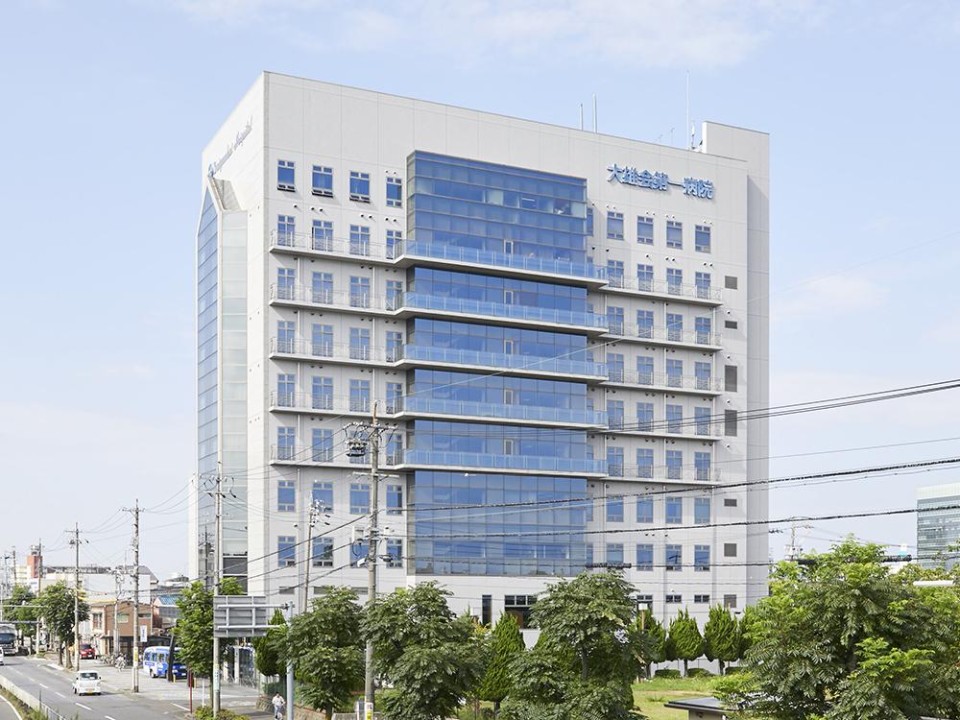
Address:1-6-12 Hagoromo, Ichinomiya-shi
Established:1974
URL:https://www.daiyukai.or.jp/organization/daiichi_hospital/
Our initiatives in medical tourism
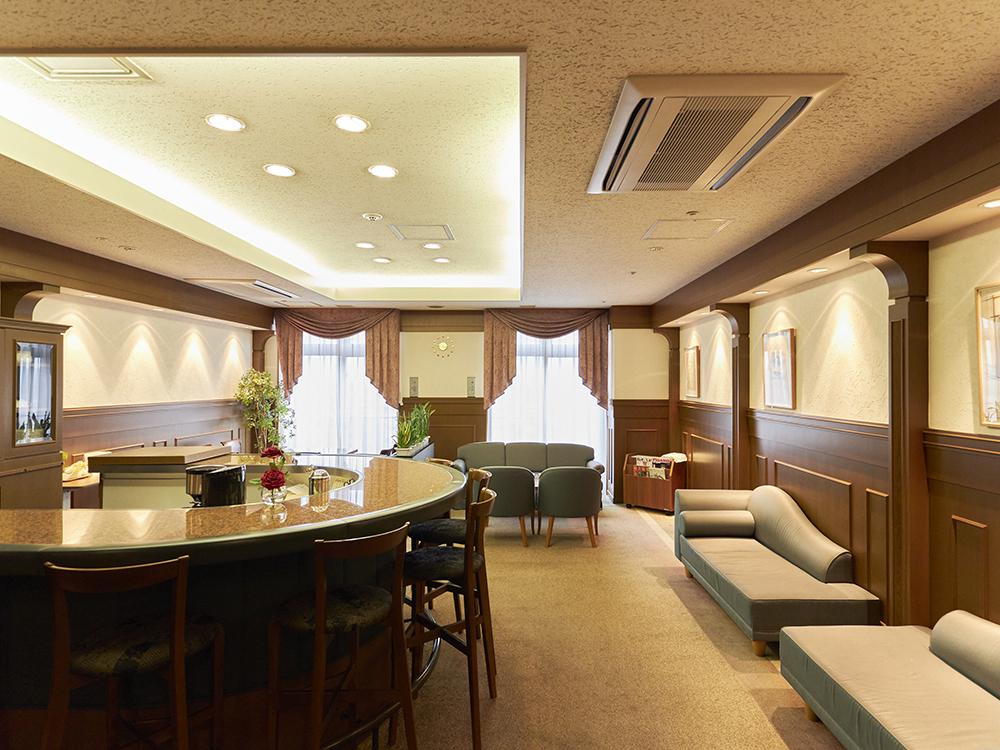
Before the COVID-19 pandemic, demands for medical checkups were high among Chinese patients, in particular, and we devoted our efforts to establish facilities and systems where overseas travelers can stop by in satisfying the demands.
In the past, we consulted overseas travel agents and conducted tours including health checkups so that tourists could undergo health checkups at our hospital in Ichinomiya City in between sightseeing in Nagoya or Gifu.
Now that COVID-19 infection has been categorized as Class 5, recovery of foreign tourists is expected. Chinese people are still highly interested in health checkups in Japan, and many visit on tours to Japan. Expecting an increase in inbound tourism, we thus try to work on acceptance of overseas patients and provide Japanese medical care based on reliable checkups.
In the past, we consulted overseas travel agents and conducted tours including health checkups so that tourists could undergo health checkups at our hospital in Ichinomiya City in between sightseeing in Nagoya or Gifu.
Now that COVID-19 infection has been categorized as Class 5, recovery of foreign tourists is expected. Chinese people are still highly interested in health checkups in Japan, and many visit on tours to Japan. Expecting an increase in inbound tourism, we thus try to work on acceptance of overseas patients and provide Japanese medical care based on reliable checkups.
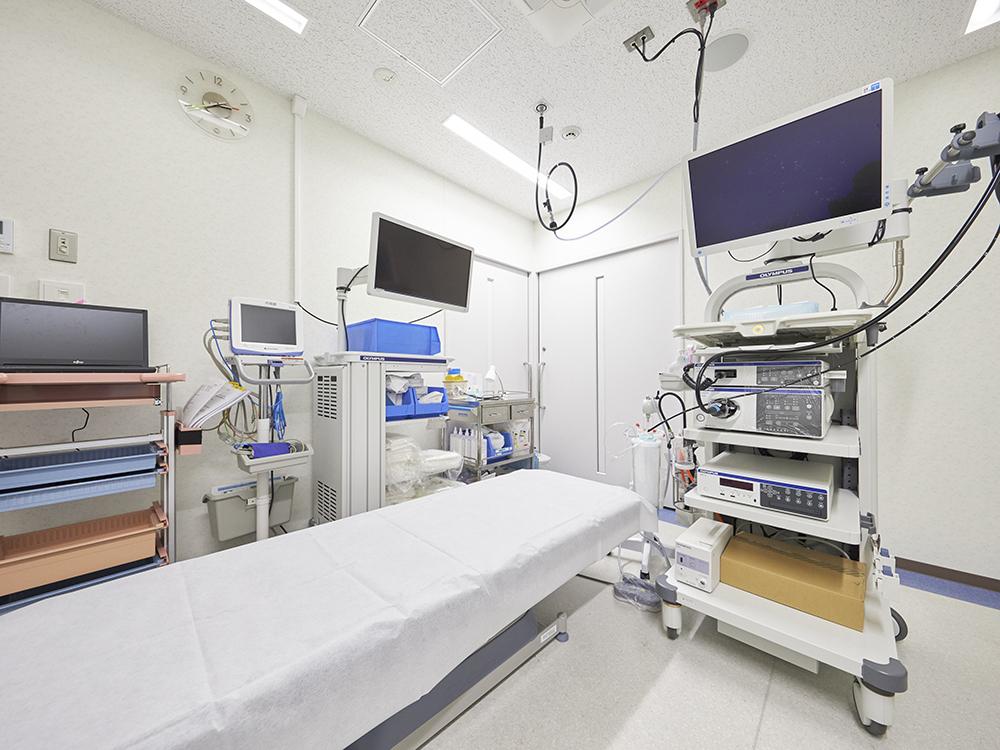
In 2002, our hospital was one of the first in Japan to introduce PET-CT, and we focus on preventive medicine by providing diversified courses for different organs in one-day physical examinations and cancer screening.
Most of the patients who visit by medical tourism undergo PET-CT. For PET-CT, we not only can provide high-precision examinations based on our long years of experience but also can manufacture radiopharmaceuticals for PET by a cyclotron device, thus accepting several patients on tours at the same time.
Most of the patients who visit by medical tourism undergo PET-CT. For PET-CT, we not only can provide high-precision examinations based on our long years of experience but also can manufacture radiopharmaceuticals for PET by a cyclotron device, thus accepting several patients on tours at the same time.
Acceptance system
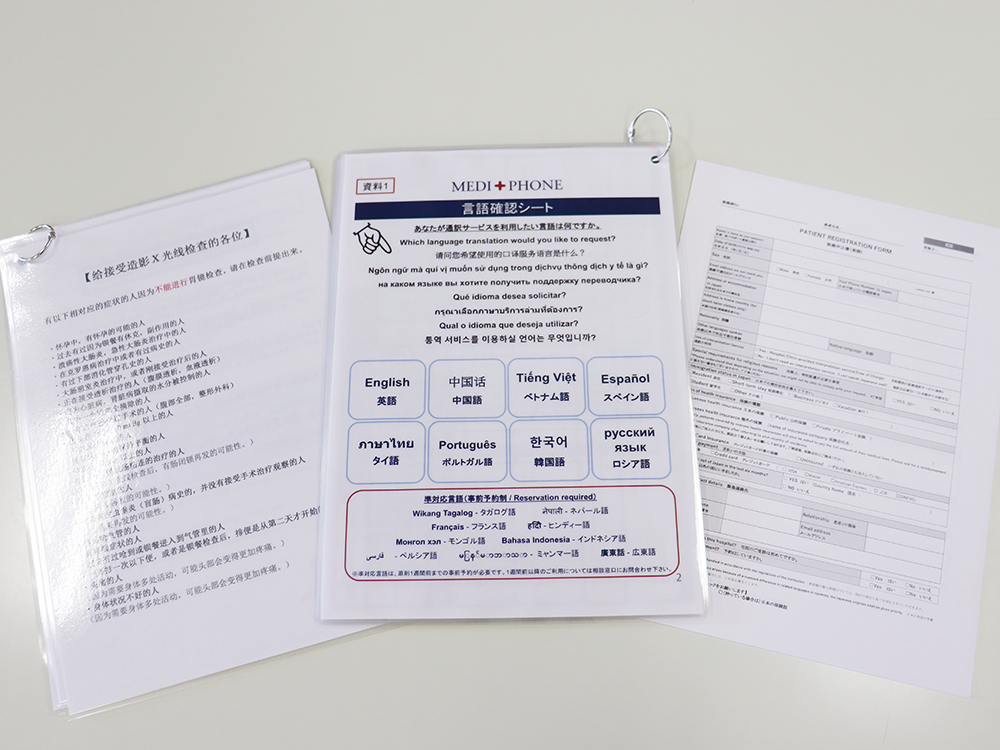
Our medical center has consulting rooms, a lounge, and waiting rooms on a dedicated floor. Patients from overseas countries have different customs and cultures, and Japanese patients who undergo health checkups may feel puzzled by their behaviors. We therefore divide the waiting spaces for them. Since we ask overseas medical tourists to undergo the premium course and wait in private rooms, we can accept overseas patients without major problems.
As for languages available, we can offer support in English, but it is difficult to handle multiple languages. Therefore, we ask, via a travel agency, patients who speak other languages to be accompanied by an interpreter for the whole group and obtain their consent and signature regarding precautions for health checkups by utilizing “written confirmation,” with which patients should undergo health checkups by following the rules of the Hospital.
As for languages available, we can offer support in English, but it is difficult to handle multiple languages. Therefore, we ask, via a travel agency, patients who speak other languages to be accompanied by an interpreter for the whole group and obtain their consent and signature regarding precautions for health checkups by utilizing “written confirmation,” with which patients should undergo health checkups by following the rules of the Hospital.
As for languages available, we can offer support in English, but it is difficult to handle multiple languages. Therefore, we ask, via a travel agency, patients who speak other languages to be accompanied by an interpreter for the whole group and obtain their consent and signature regarding precautions for health checkups by utilizing “written confirmation,” with which patients should undergo health checkups by following the rules of the Hospital.
We explain the details of health checkups using explanatory documents in multiple languages as well as Chinese. In examinations where patients must take barium, for example, there are many precautions, and the documents thus describe them in detail, such as “Please drink a lot of water after the examination.” Since attending interpreters may not be medical professionals and subtle nuances may not be conveyed precisely, we use the explanatory documents to ensure the understanding of patients.
When accepting patients via travel agencies, we avoid accounts receivable problems by asking the travel agencies in advance for advance payment.
We explain the details of health checkups using explanatory documents in multiple languages as well as Chinese. In examinations where patients must take barium, for example, there are many precautions, and the documents thus describe them in detail, such as “Please drink a lot of water after the examination.” Since attending interpreters may not be medical professionals and subtle nuances may not be conveyed precisely, we use the explanatory documents to ensure the understanding of patients.
When accepting patients via travel agencies, we avoid accounts receivable problems by asking the travel agencies in advance for advance payment.
●Future approach
While we have accepted overseas patients mainly for PET-CT and health checkups with other examinations, we would like to provide examinations for Alzheimer in medical tourism once a new Alzheimer’s medicine is approved in 2024. If patients want to receive treatment in Japan after the examinations, we will establish a system to accept them and provide comprehensive medical care with our diversified departments. While we have not determined to what extent we will accept overseas patients in medical tourism, we naturally have to distinguish our hospital from other hospitals.
We will renew the health checkup facility in October 2024 and expand acceptance with the renewed facility. Since preventive medical care is essential, we will conduct all preventive measures, from primary to tertiary. We plan to contribute to medical tourism centering around the Health Checkup Center by providing post-treatment tertiary prevention and secondary prevention to detect diseases in addition to primary prevention, such as lifestyle guidance, to prevent diseases.
We will renew the health checkup facility in October 2024 and expand acceptance with the renewed facility. Since preventive medical care is essential, we will conduct all preventive measures, from primary to tertiary. We plan to contribute to medical tourism centering around the Health Checkup Center by providing post-treatment tertiary prevention and secondary prevention to detect diseases in addition to primary prevention, such as lifestyle guidance, to prevent diseases.
Initiatives
- Materializing medical tourism with diversified health checkup courses and detailed physical examinations based on our own strengths
- Clarifying precautions, the Hospital’s rules, and acceptability and signing a written agreement in advance
- Clarifying precautions, the Hospital’s rules, and acceptability and signing a written agreement in advance

 Search medical institutions in Aichi.
Search medical institutions in Aichi.


